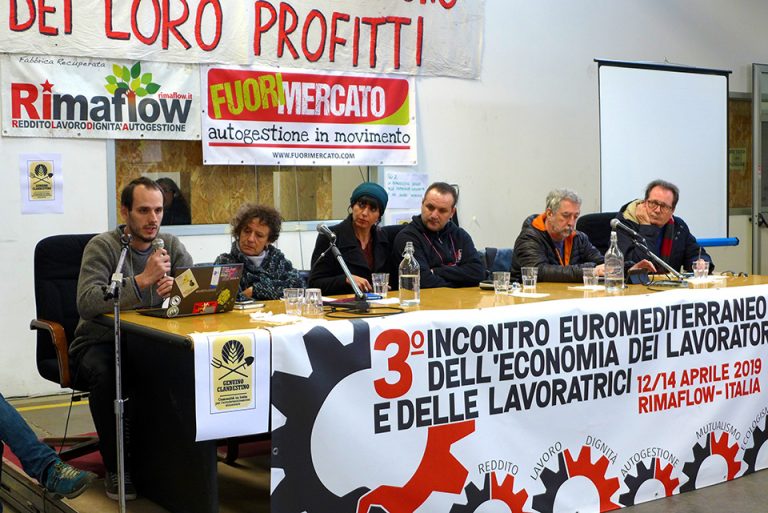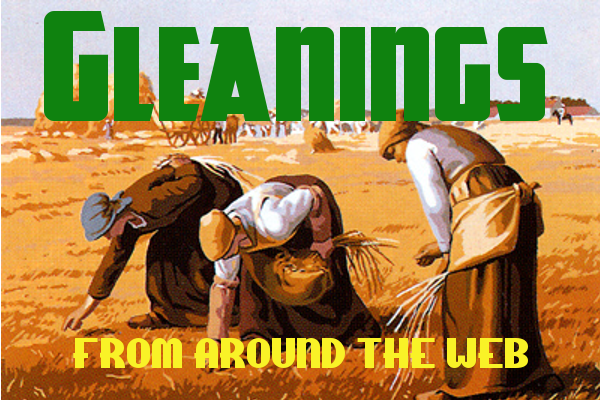This week, we talk with Kate "Sassy" Sassoon of Sassy Facilitation, a lifelong cooperator who has been involved with co-ops of several types, both formal and informal. Kate shares some of the lessons she's learned along the way, talks about her work as facilitator for cooperatives, and ends with a key piece of advice for worker co-op members.
Then, Giovanni Orlando takes a look at the history of Italian recovered enterprises, and in particular at the case of RiMaflow. The co-op is housed in a factory that was once a major manufacturer of parts for Fiat and BMW, before being sent into bankruptcy and stripped of it's machinery following the Great Financial Crisis in 2009-10. Under worker control, the warehouses have become a polyfunctional space, hosting movies and plays, artisans workshops, a bar, a kitchen, a food delivery program and much more.
Finally, it's getting towards the end of the year and we have yet to make any real effort at fundraising. Largely thanks to the generosity of readers like you, we haven't needed to worry about it. Thanks to everyone who has made a contribution throughout the year! If you would like to join them in supporting our independent coverage of worker co-ops and the solidarity economy, you can make a donation here (it's even tax-deductible in the US).
An Interview with Kate "Sassy" Sassoon
by GEO Collective
Josh talks with Kate "Sassy" Sassoon about her long history in co-ops of all different varieties and her current work as a co-op facilitator.
Recovering Solidarity? Work, struggle, and cooperation among Italian recovered enterprises
by Giovanni Orlando
RiMaflow represents a space where the formal and the informal economy meet, but also where labor—or what is left of it—intersects socialization. For five years, the occupation of their old workplace meant the workers operated in a condition of illegality that made their arrangements at best void, at worst possibly criminal, despite the fact that they had registered the new cooperative. This condition of illegality, however, created an opportunity for a great many people whose livelihoods are extremely precarious, while also offering local community groups a place to meet outside the private rented sector. The people who trade from the recovered factory and the groups who meet there have in turn supported the occupiers on many occasions, a dynamic that appears to be based on a form of “grassroots universalism”, or what one worker once described as “the second-last helping the last”.
Mutual aid fairs offer help, sense of community
KGOU — On a chilly Sunday afternoon, a line of people wraps around the Irving Middle School Rec Center in Norman. They’re attending Red Dirt Collective’s mutual aid fair, where people can get food, clothes, and other resources at no cost. “We’re kind of just trying to have everything in one place so people can walk across the street and get the stuff they need and also connect with each other and have conversations and get to know their neighbors,” said Ashley Creed, Red Dirt Collective’s director of mutual aid...
The Past and Future of Black Co-ops
Nonprofit Quarterly — The 1930s and 1940s were similar….there was an economic crisis that was even worse than in the 1880s. There was also this connection again back to the progressive movement, as the administration of Franklin Delano Roosevelt was becoming more and more interventionist and progressive. Even the federal government [was] pushing what they called self-help co-ops...
Capitol Hill mansion is now a permanently affordable housing co-op
Denverite — A Capitol Hill mansion that once housed generations of aspiring butlers is being converted into the city’s first permanently affordable housing co-operative. “The irony's not lost on us,” said Lincoln Miller, the executive director for Boulder Housing Coalition, which purchased the property. “We really appreciate that and that is part of why we're calling this the People's Mansion.”...
How Worker Cooperatives Can Better Address Community Care Needs
CWCF (Youtube) — How worker co-ops can help better address the crisis of care provision that is making headlines across Canada.
Empowering Communities Through Collective Ownership [Event]
NDCC — Discover the basics of the cooperative business model and how it empowers communities through shared ownership, democratic decision-making, and equitable profits. Learn about different types of co-ops, their benefits and how they can drive sustainable growth, especially in underserved areas...
Like what you find on GEO?
Make a Donation Today!
Your tax-deductible contribution ensures that GEO can continue to provide independent grassroots content about the cooperative and solidarity economy movements.
Got something to say?
Let us know. Send your comments, suggestions, rants and article submissions to editors@geo.coop.
Follow us on Social Media
Mastodon: social.coop/@GEO_Collective
FB: facebook.com/GEOCollective
Twitter: twitter.com/@GEO_Collective
Instagram: instagram.com/grassrootsecon
Our mailing address is:
Grassroots Economic Organizing
P.O. Box 115
Riverdale MD 20738-0115




